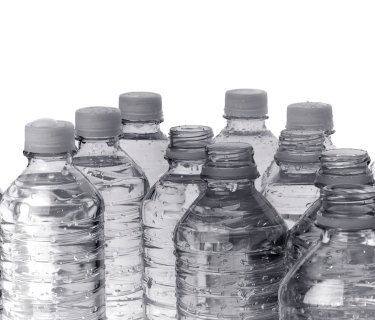Bisphenol A, also known as BPA, is an industrial chemical that is used in the manufacturing of many products that we use every day. This chemical is most commonly found in hard plastics, including food storage containers, plastic bottles, dental sealants, toys and the linings of food cans. Recent concern has arisen over the effects of prolonged exposure to BPA, after a cross-sectional study revealed that those with high BPA exposure have an increased the risk of heart disease and diabetes, while another study links BPA to liver damage and hormonal interference leading to obesity.
The Canadian government has already taken steps to limit BPA exposure to infants. In 2008, Canada was the first country to ban the use of baby bottles containing BPA, and additionally labeled BPA as a toxic chemical. However, there are still many products available in Canada that contain BPA, such as CDs, DVDs, water bottles and food cans. Before BPA can be phased out from the manufacturing process of Canadian products, more research must be accumulated in order to officially determine BPA as a dangerous substance. Luckily, that time is coming soon, as the Food and Drug Association has partnered with the US Department of Health and Human Services and additionally the Centers for Disease Control and the National Institutes of Health intend to launch a thirty million dollar research initiative to observe the health implications of BPA exposure.
Until that time comes, there are several ways that you can help to reduce your exposure to BPA chemicals, from eating fresh foods to refraining from microwaving food in plastic containers. When buying new plastic containers for water or food storage, make sure that the products that you are buying are BPA-free. Many plastic-manufacturers have recently begun to develop BPA-free products in response to consumer requests. If you’re wondering whether your current plastic-ware is BPA-free, you can identify the type of plastic by the recycling number on the bottom of the container. Numbers 1, 2, 4, and 5 are all guaranteed to be free of BPA and are safe for both you and your family to use. Reducing your exposure to BPA now may prove to an important and extremely beneficial decision, as it will reduce your risk of developing heart disease, liver problems and diabetes, while vastly improving your quality of life overall.

